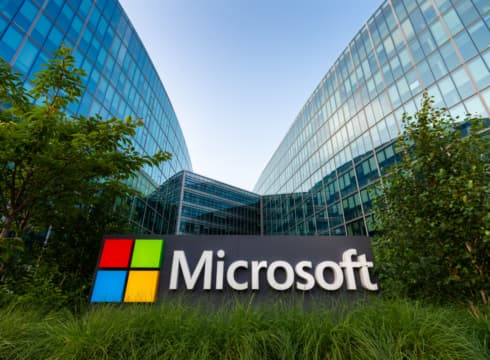Microsoft launched OpenAI’s latest multimodal LLM “GPT-4o” on Azure AI Studio and as an API
Microsoft also launched a new category of AI-powered Windows PCs called “Copilot+ PCs”, starting at $999 (around INR 83,000)
The new offerings were unveiled at Microsoft’s three-day Build developer conference, which will see the launch of 60 new products and solutions
Inc42 Daily Brief
Stay Ahead With Daily News & Analysis on India’s Tech & Startup Economy
The word “AI” (artificial intelligence) took centre stage on the first day of Microsoft’s three-day Build developer conference.
Attended by 4,000 people in Seattle, the event will see the tech major announcing as many as 60 new products and solutions over the three-day period.
The biggest takeaway from the conference was the launch of OpenAI’s latest large language model (LLM) “GPT-4o” on Azure AI Studio and as an API. As per Microsoft, the latest LLM will be a multimodal model that will take text, image and audio as inputs.
Not just this, the company also unveiled its newest multimodal model in the Phi-3 family of small language models (SLMs) called Phi-3-vision. Available on Azure, the latest SLM offers the ability to input images and text and receive text responses.
Bolstering its hardware pitch, Microsoft also announced the roll out of its new virtual machines in partnership with AMD to cater to the AI training and inferencing needs of its clients.
“We are the first cloud provider to bring AMD’s leading MI300X AI accelerator chip to power customers’ AI training and inferencing needs, with the general availability of the Azure ND MI300X v5 virtual machine series optimised for demanding AI and high-performance computing (HPC) workloads like Azure OpenAI Service,” said the company.
Another major takeaway of the event was the launch of a new category of AI-powered Windows PCs called “Copilot+ PCs”. Starting at $999 (around INR 83,000), the new desktops come with speeds up to 40+ TOPS (trillion operations per second) and access to AI models. The PCs will be rolled out in partnership with original equipment manufacturers (OEMs) such as Acer, ASUS, Dell, HP, Lenovo and Samsung from June 18.
At the event, the big tech major also previewed its new Cobalt 100 Arm-based virtual machines (VMs). These VMs are powered by Cobalt 100, Microsoft’s custom-designed compute processor, which is built on an Arm architecture and is specifically made to run general-purpose and cloud-native workloads.
At the event, the big tech giant also announced the expansion of Copilot for Microsoft 365, offering additional upcoming new functionalities.
“Microsoft Copilot Studio is introducing new agent capabilities, empowering developers to build copilots that can proactively respond to data and events, tailored to specific tasks and functions. Copilots built with this new category of capabilities can now independently manage complex, long-running business processes…,” said the company.
Additionally, the company has unveiled new plugins that allow developers to connect the Copilot to new data sources and applications. Not just this, GitHub also launched its maiden set of Copilot extensions.
The developments come at a time when Microsoft has bolstered its AI pitch globally. Back home in India, the slew of new offerings will enable the company to ride the AI wave and attract a new breed of customers looking to adopt the emerging technology.
The tech giant recently bought 48 acres of land in Hyderabad in a transaction valued at INR 267 Cr to expand its data centre business and develop one of the biggest data centres in the region. Not just this, it also plans to train 2 Mn Indians in AI by 2025.
A recent report noted that more than 92% Indian “knowledge” workers were using AI tools in the workplace. This, in turn, represents a major opportunity for AI startups looking to tap into businesses deploying AI offerings. Not just this, AI percolation reportedly appears to span sectors from BFSI and healthcare to IT and fintech sector.
Such has been the clamour that Microsoft India managing director Irina Ghose recently said that nearly 500 of the big tech giant’s customers had moved to Azure OpenAI. And this is just the tip of the iceberg. The hardware and compute ecosystem also represents a huge market as GenAI penetration deepens and GPU demand surges even further.
Overall, Inc42 estimates the Indian GenAI market to reach a size of $17 Bn by 2030.
{{#name}}{{name}}{{/name}}{{^name}}-{{/name}}
{{#description}}{{description}}...{{/description}}{{^description}}-{{/description}}
Note: We at Inc42 take our ethics very seriously. More information about it can be found here.


